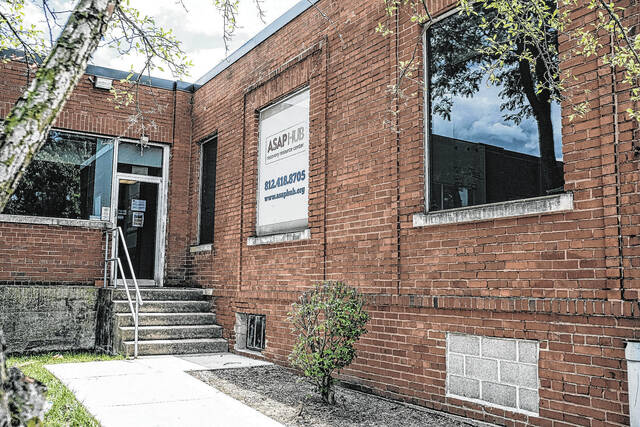Alliance for Substance Abuse Progress leaders are hoping to continue bolstering the community response this year to Bartholomew County’s drug crisis — including expanding access to sober living homes as demand for beds in local facilities still “far exceeds” capacity.
Sober living homes are places that seek to provide a safe environment for people struggling to overcome substance use disorder as they to go through recovery, find employment and transition into society. They are seen as “crucial components” in the path to recovery, ASAP officials said.
Several sober living homes or similar facilities have opened in Bartholomew County since 2020 — including three operated by ASAP — with a collective local capacity of more than 100 beds, according to figures cited by ASAP officials.
But that’s not enough.
“Just from ASAP alone, we probably have 40 applications a month from people who are looking for sober living that we are not able to help,” ASAP Executive Director Sherri Jewett said.
If ASAP is unable to place people in one of its homes, staff members work to refer people to other homes in the community or elsewhere. However, many locations are scrambling to find room for people, with local officials acknowledging that “the demand for sober living far exceeds the capacity that we have.”
“We want to make sure that people who are ready for sober living have access to it,” Jewett said. “It doesn’t necessarily mean that it’s more beds in Bartholomew County. It may mean connecting people with beds in other communities that might be out there. It may mean bringing in additional partners or something like that.”
“We do refer (people) to other homes within the community and in other communities, but we know there’s an unmet need,” Jewett added.
The update from ASAP officials comes amid the deadliest two-year period on record in a drug epidemic in Bartholomew County that officials believe is currently being driven, in large part, by the growing prevalence of fentanyl in the illicit drug supply. The drug epidemic is also being driven by the COVID-19 pandemic, which left many drug users socially isolated and unable to get treatment or other support.
More than 60 people have died from drug overdoses in Bartholomew County since January 2020, the highest two-year total on record.
Last month, the Bartholomew County Coroner’s Office estimated that at least 31 people had died from drug overdoses since the beginning of 2021, matching 2020 for the highest yearly total on record. And updated report is expected soon from the coroner’s office with the final total for 2021, pending completion of toxicology reports.
Fentanyl is a synthetic opioid that is 50 to 100 times more potent than morphine and is often illegally produced and sold on the streets for its heroin-like effect, according to the CDC.
In Bartholomew County, fentanyl and methamphetamine “are far and away the two biggest culprits” of fatal overdoses, with local officials often finding other drugs laced with fentanyl.
For their part, ASAP officials said the pandemic “really impacted our forward movement,” but they are hoping to serve more people this year, expand access to naloxone — a nasal spray that can reverse an opioid overdose — and redouble efforts to raise awareness about the services ASAP offers.
Launched in 2017, ASAP is a community-wide response to address substance use disorder, including the opioid crisis, in Bartholomew County. Since 2015, at least 151 people in Bartholomew County have died from drug overdoses, according to figures from the Bartholomew County Coroner’s Office.
ASAP was formed through a partnership between the Columbus and Bartholomew County governments and Columbus Regional Health.
Before 2020, there were no sober living homes in Bartholomew County. At the time, the closest recovery housing for Bartholomew County women was in Monroe County, and the closest recovery housing for men was in Jennings County.
Since then, Bartholomew County has “come a really long way,” said ASAP Director of Operations Matthew Neville.
However, ASAP officials said they plan to work internally and with local partners “to increase the sober living beds that we have in our community” to meet the need.
“It will be a big year,” Jewett said.





